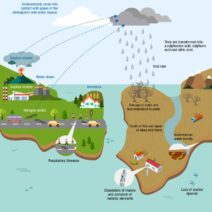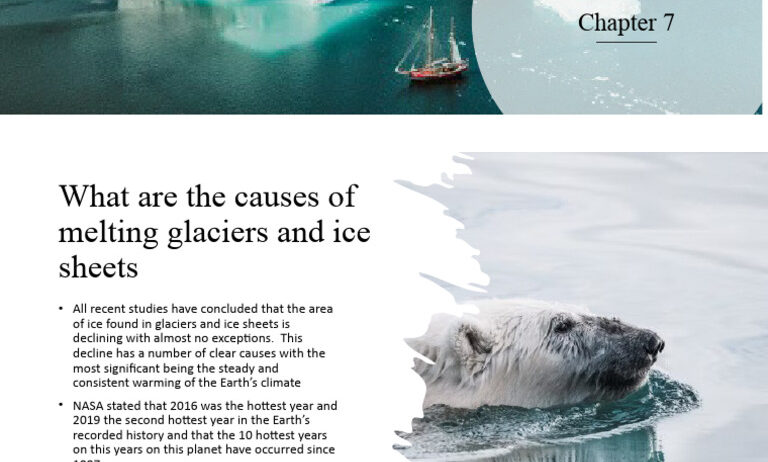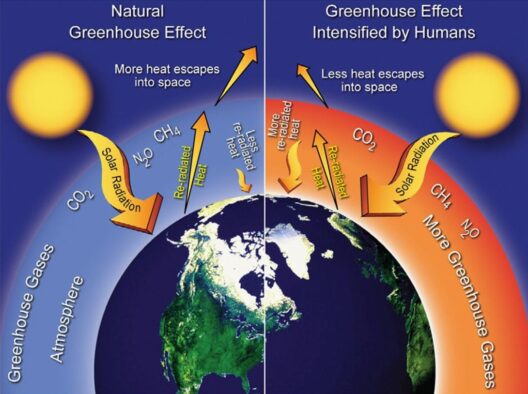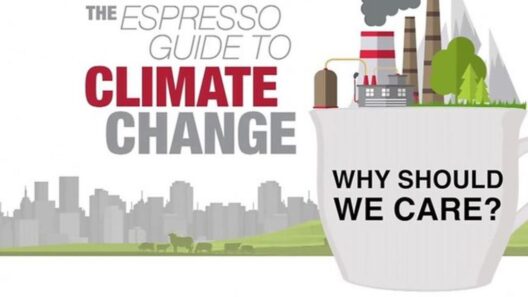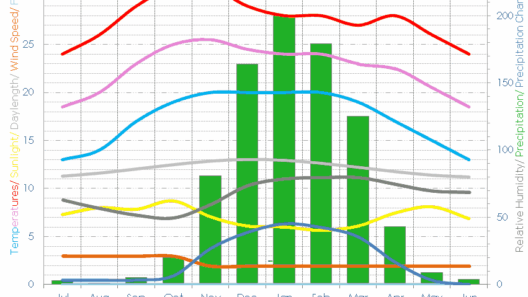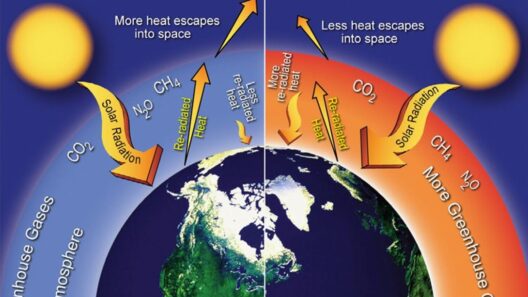Climate change represents one of the most profound challenges of our time, transcending the immediate concerns of melting ice and rising sea levels. While these phenomena attract significant media attention, the ramifications of climate change permeate various facets of human existence and ecological integrity, warranting a deeper understanding of its comprehensive significance.
At the core of the climate change narrative lies the unmistakable alteration of our planet’s natural systems. These systems, which have existed in a delicate equilibrium for millennia, are now undergoing monumental transformations. Increasing global temperatures, which have risen approximately 1.2 degrees Celsius since the pre-industrial era, signify more than just statistical data; they reflect a burgeoning crisis that could redefine our way of life.
To comprehend the importance of climate change, it is crucial to recognize its multidimensional impacts. One of the most poignant consequences is the intensification of extreme weather events. Floods, hurricanes, droughts, and wildfires, once sporadic, have become more frequent and severe. The amplification of these disasters imposes not only humanitarian costs but also economic burdens. Infrastructure damages, loss of agricultural productivity, and displacement of communities necessitate extensive financial investments, diverting resources from critical developmental projects.
Furthermore, the socio-economic fabric of our societies is at risk. Vulnerable populations, particularly in developing nations, bear the brunt of climate change repercussions. Limited resources, inadequate adaptive capacity, and socio-political instabilities compound their vulnerabilities. Thus, addressing climate change emerges as a moral imperative, as inequities deepen and marginalized communities are jeopardized. Imagine a future where climate refugees are commonplace, forced out of their ancestral homes due to uninhabitable conditions; this is not a distant dystopia but an impending reality.
The ecological ripple effects of climate change are equally staggering. Biodiversity, a cornerstone of ecosystem resilience, is threatened as species struggle to adapt to rapid changes in their environments. Coral reefs, often dubbed the “rainforests of the sea,” face unprecedented bleaching, while terrestrial species confront habitat loss and altered migration patterns. The extinction of species could disrupt entire ecosystems, compromising services such as pollination, water purification, and carbon storage—critical components of our planetary health.
Importantly, climate change engenders a shift in planetary feedback loops. The melting of the Arctic ice cap, for instance, doesn’t merely elevate ocean levels; it unleashes a series of interactions that could potentially unleash more greenhouse gases trapped in permafrost and contribute to further warming. The implications of such feedback mechanisms extend beyond immediate climatic alterations; they could push certain ecosystems—like the Amazon rainforest—past tipping points, leading to irretrievable damage.
The discourse on climate change also extends into the realms of health. Warmer temperatures exacerbate air pollution, which is linked to respiratory diseases, cardiovascular ailments, and increased mortality rates. Higher temperatures foster conducive conditions for vector-borne diseases such as malaria and dengue fever, threatening public health systems worldwide. In this context, the links between climate change and health converge, resulting in interconnected crises. The COVID-19 pandemic has demonstrated how health crises can disrupt economies and societies, underscoring that the impacts of climate problems are extensive and multifaceted.
Transitioning to renewable energy sources represents a pivotal solution in addressing climate change. Such a shift not only mitigates greenhouse gas emissions but also fosters economic opportunities. Investments in solar, wind, and other renewable technologies generate jobs and stimulate local economies. The burgeoning green economy signifies a pathway forward, illustrating that climate action can also serve as a catalyst for innovation and growth. Countries leading in renewable energy adoption are often at the forefront of technological advancements, reaping both environmental and economic benefits.
Engaging in climate action also entails rethinking production and consumption patterns. The linear economy model, characterized by ‘take-make-dispose,’ needs reconfiguration into a circular economy paradigm that emphasizes sustainability, resource efficiency, and waste minimization. By innovating processes and adopting responsible consumption practices, societies can mitigate their ecological footprints while enhancing resilience to climate impacts. These shifts, while challenging, are essential for fostering sustainable development goals and ensuring the long-term viability of our planet.
Lastly, addressing climate change requires collective action and global cooperation. The interconnectedness of nations underscores the necessity of collaborative efforts in policy-making and implementation of environmental regulations. Climate change knows no borders; thus, international agreements, such as the Paris Agreement, epitomize the commitment needed to combat this existential threat. Each nation’s pledge to reduce emissions contributes to the collective strength of global efforts to stave off catastrophic outcomes.
In conclusion, understanding climate change extends beyond the surface of melting ice. It calls for an appreciation of its intricate threads woven into the fabric of our environment, economy, and society. The urgency to act is palpable, as each element—whether it be our health, biodiversity, or global stability—interconnects in the complex tapestry that climate change epitomizes. Embracing climate action is not merely about preserving our current environment; it is about ensuring a sustainable, equitable future for generations to come. By nurturing a collective consciousness that prioritizes ecological integrity, we can negotiate a more resilient, harmonious existence with our planet.


